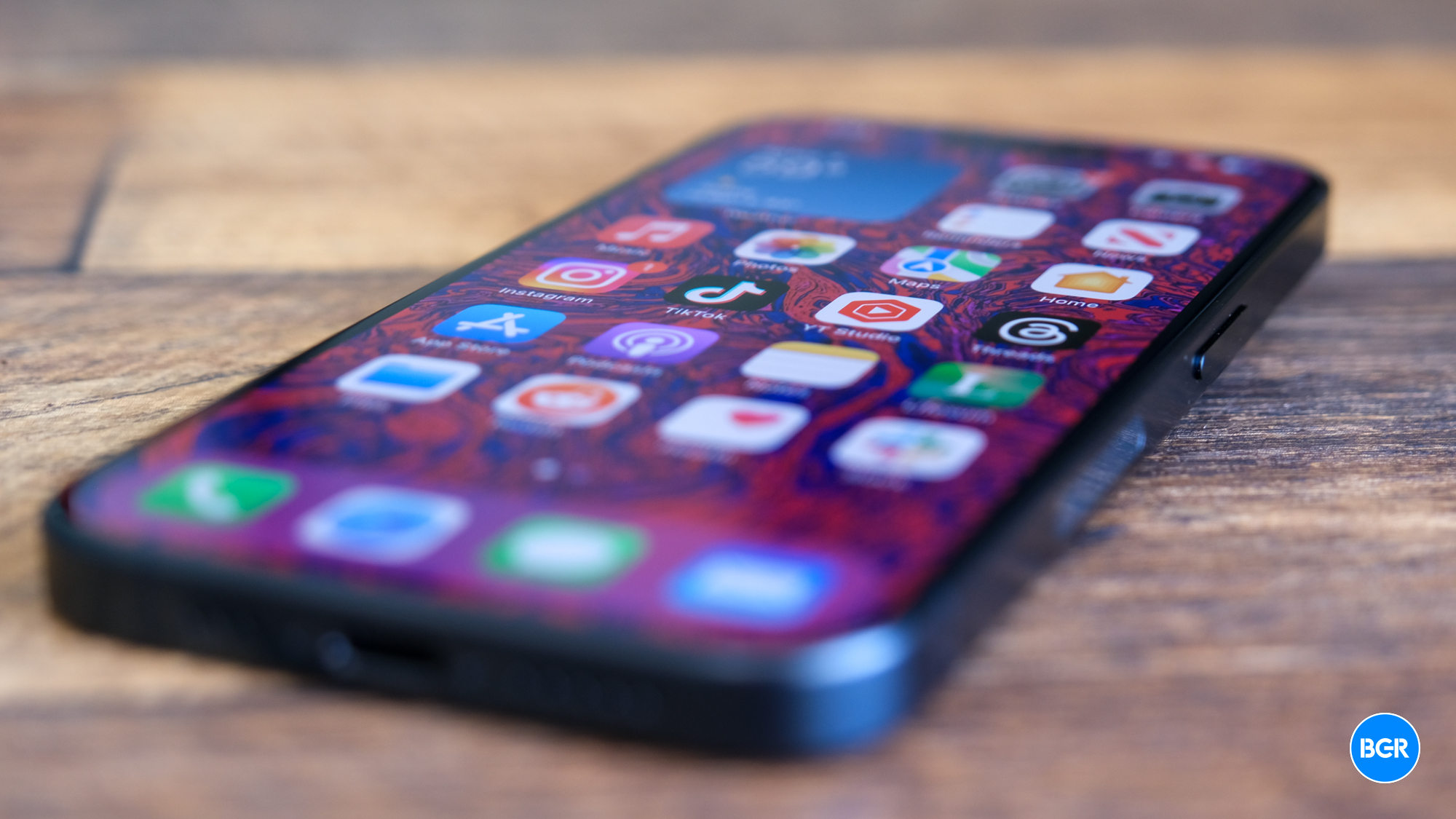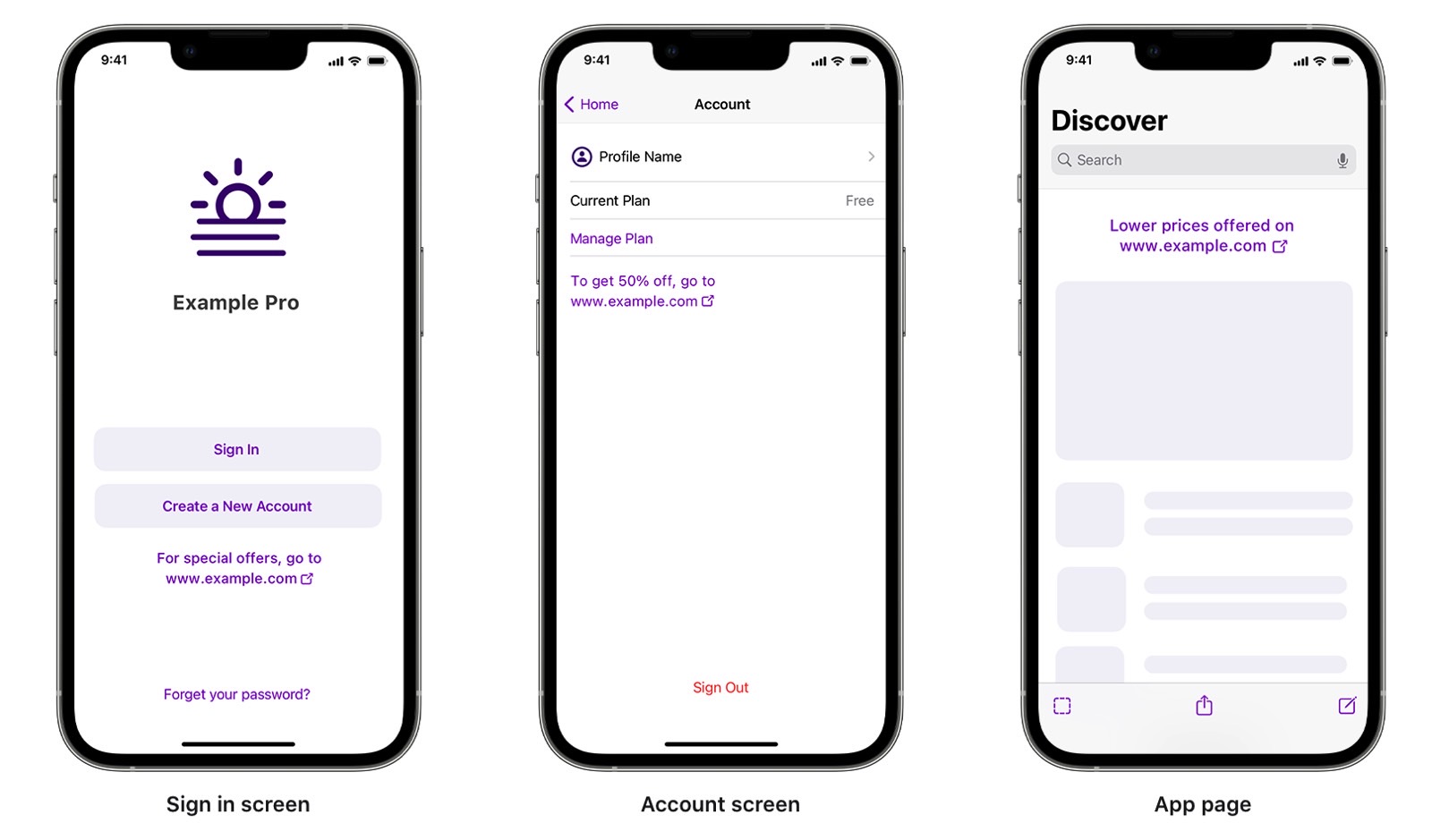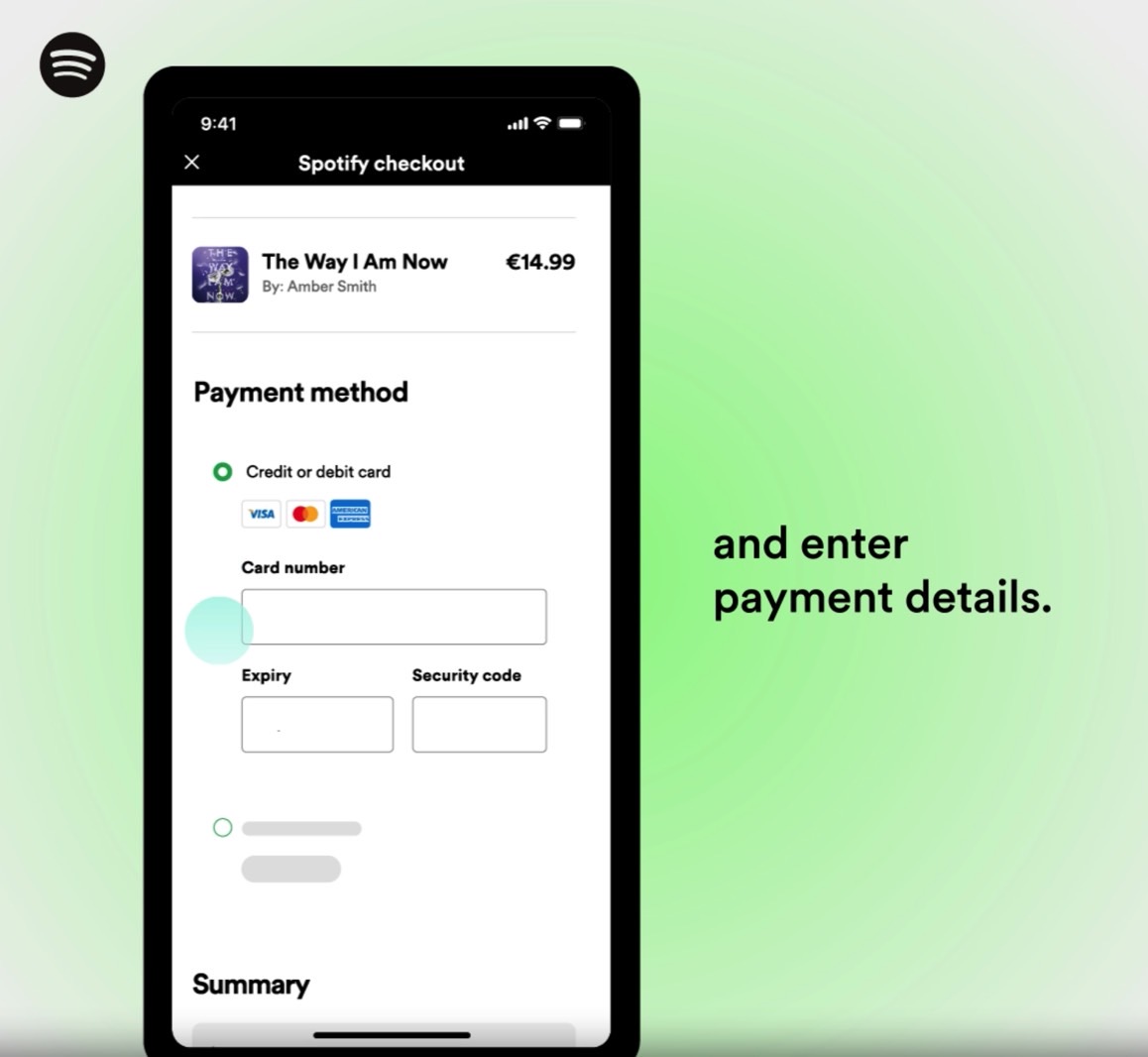Apple will have to open the iPhone to sideloading, third-party app stores, and third-party payment systems come March 7th. It’ll happen only in Europe, where tech companies must comply with the new Digital Markets Act (DMA) law that aims to improve competition in the tech space, defend users’ rights, and improve their experiences.
Some developers can’t wait to see it happen, as it’ll let them open their own app stores or use their payment systems for Apple. Spotify is one of the most vocal critics of the current App Store rules and Apple as a whole, and the company just published a blog post describing what the Spotify experience will be on iPhone starting in March.
In its post, Spotify describes my nightmare scenario: Sideloading iPhone apps and using third-party payment systems. However, other iPhone users will disagree with me and embrace Spotify’s app store and payment system.
The problem with Spotify’s attack is that it contains plenty of misinformation. None of the arguments Spotify makes are guaranteed, as Apple has yet to announce how iPhone sideloading will work in the EU. On top of that, Spotify is actually lying to me and all of its potential customers.
This is more of a marketing gimmick, a covert attack on Apple even before the iPhone maker has had a chance to announce its plans.
My nightmare scenario
Let’s get this out of the way first. I explained time and again that I will not use iPhone sideloading or third-party app stores on the iPhone. I prefer the security, privacy, and convenience that Apple offers. I also don’t want to have to worry about payment systems that might not be as secure or as convenient as Apple’s.
I don’t have to worry about malware apps and phishing attacks. Also, I know that Apple secures all my personal data while imposing strict privacy requirements. Spotify, by the way, does want to track you on the iPhone.
Finally, all my apps are in one place, ready to be easily reinstalled when I change devices.
I’ll also say that I still think Apple should make iPhone sideloading available globally, win this PR fight, and let the chips fall where they may.
Spotify is spreading misinformation
Spotify penned a blog post filled with GIF-like clips that tease a post-DMA iPhone app experience Spotify can’t guarantee. It’s wishful thinking at best, as we don’t know how Apple will implement the upcoming changes. Also, Spotify goes out of its way to avoid using an iPhone design in those GIFs, even though the UI is clearly iOS. Make no mistake, the blog post targets the iPhone, not Android, although Google will have to comply with DMA rules as well.
Maybe it’s because Spotify already has a sweet deal with Google in place, one that sees Spotify paying only a 4% fee instead of the usual 30% or 15% digital tax.

Lie #1: Spotify Premium on iPhone
The blog starts with an outright lie:
What’s one of the top complaints about Spotify? It’s actually something that until now has been outside of our control: the ability to seamlessly subscribe to and buy things through Spotify on your iPhone. Consumers have asked us for years about the dead ends, lack of information, and endless hoops to jump through just to purchase a subscription or audiobook. But beginning March 7, if you live in the European Union, that will change. With the Digital Markets Act (DMA) rolling out, your Spotify is about to become a whole lot better, and that means more opportunities for developers and creators everywhere.
Spotify, and I’ll bold this so it’s clear, chooses not to sell subscriptions to iPhone users. It can certainly do it, but then it’d have to pay Apple its fee. And Spotify doesn’t want to do that.
Also, Spotify won’t necessarily become better once the DMA arrives.
Lie #2: What better prices?
The following lie isn’t as big. Spotify says that the DMA will let the company inform users about their options. It’s true that Apple prevents developers from doing that. But the part about better deals is a lie. What better deals? You can’t buy a subscription via the current iPhone app, so it’s not like Spotify is about to get cheaper.
For years, even in our own app, Apple had these rules where we couldn’t tell you about offers, how much something costs, or even where or how to buy it. We know, pretty nuts. The DMA means that we’ll finally be able to share details about deals, promotions, and better-value payment options in the EU.
Lie #3: No Apple tax?
This is where a really big, wishful-thinking lie comes next. Spotify tells us that the DMA will bring you prices that do not contain the mandatory 30% tax that Apple imposes:
And an easier experience for you means good things for artists, authors, and creators looking to build their audiences of listeners, concert-goers, and audiobook-loving fans. What’s more? All of this can now come without the burden of a mandatory ~30% tax imposed by Apple, which is prohibited under the DMA.
But, and I’ll bold this, you can’t buy a Spotify subscription on iPhone because Spotify doesn’t want to pay Apple’s fees.
Spotify could always let you do it, even if it meant paying a more expensive price. It doesn’t. Therefore, when the DMA rolls along, Spotify won’t get cheaper.

It gets worse. While you currently don’t pay 30% / 15% to Apple for Spotify Premium subscriptions via the iPhone anywhere in the world, you might pay 27% / 12% to Apple once Spotify starts charging you for Premium via its payment processor.
That’s how Apple will handle third-party iPhone payments in the US. The policy is also already in place for dating apps in the Netherlands. There’s nothing to indicate Apple won’t apply the same fees to the EU for third-party payments. It’s the opposite. Reports say Apple might implement the 27% fee in Europe. But we don’t really know. Spotify is making promises here that it might not be able to keep.
Later in the blog post, Spotify reiterates its personal take on the DMA implications for the iPhone, repeating some of the misleading points above:
Right now you can’t upgrade from Free to Premium in the app, and we’re not even allowed to tell you about how much our various subscriptions cost, how you can save money, or where to purchase them. That doesn’t make sense. For everyone living in the EU, this is about to change.
Yes, Apple preventing that flow of information isn’t right. But that doesn’t mean you couldn’t buy a Spotify Premium subscription on iPhone if Spotify wanted to let you.
Lie #4, and the video I hate most
Since I mentioned the videos in this clear anti-Apple attack from Spotify, I’ll show you a screenshot that I hate the most. Oh, and it is an anti-Apple attack because Spotify ends the whole thing with a promise that “the fight continues.”
Back to the video, the image below shows you what third-party payment systems Spotify thinks it can employ on iPhone. As you can see below, it involves entering your card details. That’s one thing I’ll never do on my iPhone, even though I’d be able to do it with one click.

I’d rather subscribe to Spotify Premium on the web, on my Mac, the same way I do right now. Spotify is available on all sorts of devices, not just the iPhone. What I don’t like is the idea of using third-party payments in iPhone apps, hence the “hat” towards that animated screen.
Also, the problem with Shopify’s UI is that I don’t think it can offer that implementation. This is what constitutes a lie.
Apple has already explained how third-party payments will work in the US, and it should be similar in the EU. Developers will have to warn buyers they’re going to charge them outside of the App Store. They’ll have to load their websites inside the app, therefore sending the user to Safari to pay for digital goods. It won’t be as seamless as Spotify makes it seem.
Could some of this be true?
Spotify could have genuine information from Apple that lets them design the post-DMA Spotify user experience. It’ss possible. But I highly doubt Apple would share anything with developers before announcing DMA-related features to the entire EU and the world. Especially one of its fiercest critics.
Therefore, no, Spotify, I won’t download any of your apps from your website. Nor will I will not susbcribe on iPhone to Spotify Premium come March 7th, even though I will be able to try the new iPhone sideloading experiences once they roll out.








